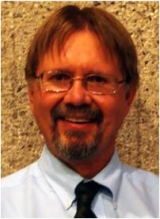One year ago this week I wrote that Barack Obama had finally done it. He had taken the tantalizing trail to a notoriously slippery slope. In an op-ed for the Wall Street Journal, he promised, “federal agencies (will) ensure that regulations protect our safety, health and environment while promoting economic growth.” In other words, we would have our environmental cake and eat it too, for the sake of economic growth.
For some time after the op-ed, Obama did little to promulgate this win-win rhetoric, and those of us who prefer the truth, the whole truth, and nothing but the truth regained some hope. Economic growth is a serious topic, and so is environmental protection. We’d like Obama to come clean and tell it like it is: There is a fundamental trade-off between economic growth and environmental protection.
Maybe the truth about economic growth and environmental protection doesn’t make for an easier choice between the two, but what kind of a choice can be borne of a lie?
Now it’s fairly reasonable for Obama to say, as he did last month in a speech to EPA employees, that “Safeguarding our environment is also about strengthening the economy.” There is no doubt that safeguarding our environment protects the strength of the economy. But Obama’s exact wording is a stretch because strengthening usually connotes growing the economy. That cannot be done while truly safeguarding the environment. Economic growth — increasing production and consumption of goods and services in the aggregate — does and must have a growing environmental impact. That’s Ecological Economics 101.
Obama fell further down the slippery slope with “I do not buy the notion that we have to make a choice between having clean air and clean water and growing this economy in a robust way. I think that is a false debate.” But I don’t buy the notion that Obama is that oblivious to the truth. Surely he knows our skies, rivers and oceans gradually fill with the byproducts of production and consumption. But as with all politicians, he also knows that the average voter doesn’t detect the dulling of the skies or the graying of the waters during the course of one electoral cycle. So he hunkers down on the slippery slope, content in avoiding the attention of a really inconvenient truth.
Once in awhile, though, a spotlight shines on the slope, such as in Sunday’s Washington Post article by Juliet Eilperin, “Obama administration slows environmental rules as it weighs political cost.” Rules aimed at curbing auto emissions are on hold, as is a proposal to regulate soot, because of the toll these and other environmental protections would take from the rate of economic growth. In other words, the administration knows darn-tootin’ well that bona fide environmental “safeguarding” can’t be reconciled with economic growth. They also suspect that the political cost of prioritizing environmental protection over economic growth at this point in history is more than they are willing to pay.
Maybe it wouldn’t be so bad, this prioritizing of economic growth over environmental protection in a world of endangered species, oil spills, and climate change, if only presidents who model themselves after Ol’ Abe Lincoln were at least forthright about the trade-off between economic growth and environmental protection. Why can’t Obama just come out and say, “I realize that the #1 concern among Americans today is jobs. That’s why I’m doing all I can to help grow the economy. And I’ll continue to do this, as long as we realize that growing the economy does have a growing impact on the environment too. So while we’re growing the economy today, we must turn some of our attention to how we can transition tomorrow to a stable economy, or what they call a ‘steady state economy.’ That’s the vision of the future, and the sooner we explore it, the more prepared we’ll be.” Or something like that? At least then we could respect him for telling the truth on economic growth and environmental protection.
Would that really get him unelected? Who says? How do they know?
But the truth-telling onus is not entirely on Obama. Frankly, I think we should be far more disappointed with the many “environmental” organizations and agencies who themselves pollute the internet and airwaves with the win-win wimpsmanship. They’re the ones who could empower Obama to tell it like it is without being so worried about political consequences. As it is now, it’s hard to blame Obama for fearing the role of Lone Ranger in a wilderness of intellectual laziness.
It’s too late in this article to elaborate on these organizations and what their problems are, but count on it for another day in the Daly News.






